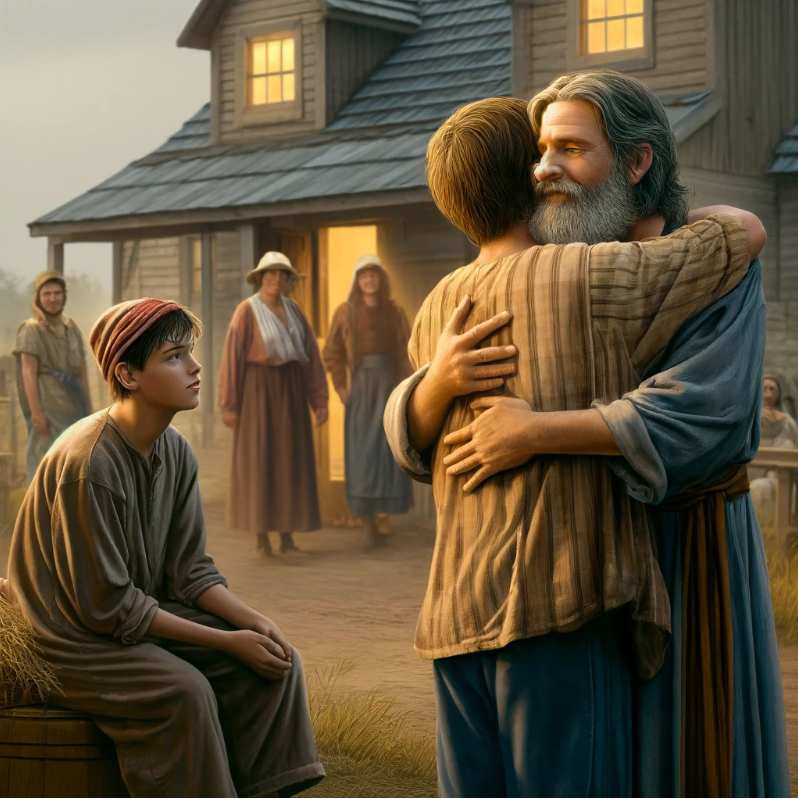
The Parable of the Prodigal Son is found in the Bible in the Gospel in Luke 15:11-32.
Luke 15:11-32
In Luke 15:11-32, a man had two sons; the younger, in verse 12, asked for his inheritance and then squandered his wealth in a distant country, described in verses 13-16. After spending everything and facing famine, as noted in verse 14, he took a job feeding pigs, detailed in verse 15. Repentant, he decided to return to his father, admitting his sin in verses 17-19. Upon his return, described in verses 20-24, his father welcomed him with joy and celebration. Meanwhile, the older brother, who had remained faithful, reacted with envy, as depicted in verses 25-32.
Luke 15:11-32
What lesson does the parable of the prodigal son leave us in the Bible?
The Parable of the Prodigal Son offers profound lessons about forgiveness, repentance, and the unconditional love of God. In this story, the younger son asks his father for his inheritance early, which he then squanders in reckless living far from home. When he hits rock bottom, he decides to return to his father, admitting his mistakes and acknowledging that he is no longer worthy to be called his son. The father’s response is a central lesson of the parable: instead of rejection or scorn, the father welcomes his son back with open arms and great joy. This teaches us about the nature of God’s love – a love that is ready to forgive and welcome us back, no matter our past mistakes.
God’s forgiveness is a major theme here. The father’s actions mirror what God does for us. He doesn’t just accept the son back but celebrates his return. This shows that God’s love is not based on our merits; rather, it’s a gift, free and unearned. It highlights the joy God feels when one sinner repents and turns back to Him. It’s an encouragement for us, no matter how far we feel we’ve strayed or what we’ve done, to know that we can always return to God.
Repentance is also crucial in this story. The son comes to a point of real self-assessment and realizes his need to return to his father. This isn’t just about feeling sorry, but a true change of heart and action, which is what repentance involves. It’s about turning away from sinful or harmful behaviors and turning back to God.
Lastly, the reaction of the older brother also teaches us about grace and self-righteousness. The older brother, who stayed and worked faithfully at his father’s side, feels overlooked and bitter when his wayward brother is celebrated. This part of the parable warns us against a self-righteous attitude that can creep into our lives, especially if we’re diligent in our faith or works. It teaches us that God’s grace is not something to be earned but is given freely, and we should rejoice when others receive it, not feel envious or overlooked.
In all these ways, the Parable of the Prodigal Son speaks to us about the heart of God and our interaction with Him. It invites us to embrace God’s forgiveness, practice repentance, and celebrate the grace given to us and others with a humble and loving heart.
